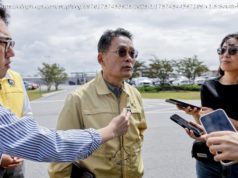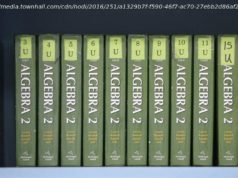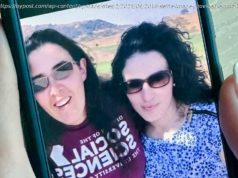The chef understood that history and political survey provide more than just context; they can illuminate the specificity of people’s lives.
If you are having thoughts of suicide, please know that you are not alone. If you are in danger of acting on suicidal thoughts, call 911. For support and resources, call the National Suicide Prevention Lifeline at 1-800-273-8255 or text 741-741 for the Crisis Text Line.
After Anthony Bourdain’s death, a particular kind of tribute proliferated in my social media feeds. Post after post eulogized the chef, who through his writing and globetrotting TV shows became an ambassador of the world to the United States, for his unflinching honesty and political conviction. Bourdain used his tremendous platform to explain to his audience how their own lives were entangled with those of other people.
In Laos for an episode of his CNN show Parts Unknown, he excoriated the CIA-waged “secret war” that left the country strewn with unexploded ordnance, which still kill dozens of Laotians every year. He insisted on the humanity of people in Gaza and Iran, places rarely humanized in the American imagination. He always stressed his solidarity with undocumented workers after working for years in the restaurant industry. From Henry Kissinger to Donald Trump, Pol Pot to Mobutu, he never minced words in damning the powerful.
Bourdain made these declarations in his trademark roguish style, and that’s in part why you listened to him: He didn’t seem to suffer fools or clichés. His charisma sprung from a gruff confidence that—along with the resources of major American television networks and the freedoms of an American passport—allowed him to saunter about the globe and tell you what was what.
But Bourdain’s brashness came with an immense humility that really made up the warp and weft of his TV shows. There’s a long tradition of Western travelers passing sweeping, self-aggrandizing judgments on the rest of the world, and he wanted no part of it.
After learning of his death, I recalled a scene from the Democratic Republic of Congo episode of Parts Unknown, in which Bourdain takes a perilous boat trip down the Congo River. I say perilous not because it was unsafe, but because it threatened to teeter into a dangerously overwrought evocation of Joseph Conrad’s Heart of Darkness: the inscrutable jungle-clad shoreline, the muddy expanse of the river, a white man alone on the prow of the boat as it puttered into the depths of the dark continent. Thankfully, the “horror” he discovers on that voyage lies not in the jungles or in the fallen hearts of men, but in the kitchen.
He wrestles with disaster in trying to make coq au vin for his crew on the boat. The chickens prove tough and scrawny and rather gruesome to kill. Then the single knife onboard is so dull that dismembering and cleaning the carcasses takes up the remaining daylight hours. The boat’s generator fails, plunging the increasingly frantic prep into darkness. “I can’t cut what I can’t see,” Bourdain exclaims. When light does return, it attracts hordes of insects, and the New York chef must finish making dinner with moths swarming around the beam of his headlamp. Finally, a sweating and haggard Bourdain trudges to the table with his cauldron of stew. In a show built on rhapsodies of food, the appreciation for his nightmarish toil is notably muted. A colleague shrugs and offers Bourdain the barest compliment: “Tastes like chicken, man.”
I find this scene clever for a number of reasons, first as a sly analogy for the farce of grand European designs in foreign lands (how else would you describe coq au vin in a skiff on the Congo River?) and second for its admirable humor and self-deprecation. On the other side of the ordeal, Bourdain makes a breakfast of egg and spam sandwiches and muses about how he might become a modern-day Mr. Kurtz. “They’ll find us 10 years later,” he says, “naked in the bush with a necklace of spam cans.”
There is a powerful awareness in both Parts Unknown and its prior incarnation on the Travel Channel, No Reservations, that the old metaphors and ways of seeing won’t do. The great gift Bourdain gave to his American audience was to remind them that no place exists outside of time. No simple image of eternal squalor or romance, chaos or tranquility is sufficient to describe any place.
The DRC that Bourdain traveled, for instance, is not Conrad’s denatured, timeless Congo, which serves simply as a backdrop for the moral tragedies of the white man. In Trinidad, Bourdain didn’t succumb to the allure of a harmonious, multicultural island, but explored how globalization bred social and economic divisions in the country. In his episode on nearby Puerto Rico—shot just before the devastation of Hurricane Maria—he sifted the remains of a collapsed economy for signs of dynamism and internal revival, finding hope in the striving determination of Puerto Ricans. History and political survey provide more than just context; they also insist on the specificity of people’s lives, how real events and forces shape their present.
Whether in Detroit or Colombia, New Jersey or Vietnam, Bourdain’s allegiances were clear; he gravitated to people dealt a bad hand by history, the victims of unjust political and economic structures. But he never let them just be victims. In the interior of the DRC, he finds a man who maintains an old library that has long since stopped receiving funding from the state. The librarian makes sure the grass is mowed, the floors swept, and the books kept in order even as they disintegrate around him. Bourdain is clearly moved by his seemingly Sisyphean work. The lush cinematography lingers on the fraying bindings, the decaying machinery, and the advancing damp, but it also takes in the palpable neatness of the man’s desk and the grace of his quiet resolve.
It’s in moments like these that Bourdain’s kind of empathy moves us from the particular to the universal. The world taught Bourdain humility and respect in the face of human endeavor. As viewers of his shows, we learned that whatever our circumstances, it’s possible to be more committed to ourselves and to others.






